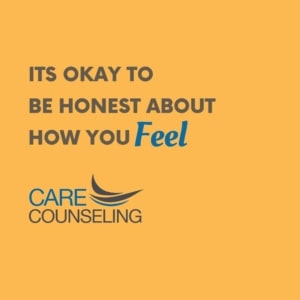Struggling to Find any Positives?!
As a therapist, I spend many hours a week talking with people who are struggling to find any positives during this time, or at all. My role is to make space for my client’s experiences during this unprecedented time.
People who have experienced trauma often struggle with being disconnected and isolated. For them, being alone can be terrifying, anxiety-provoking, and fraught with feelings they are not able to avoid. There can be feelings of hopelessness and despair: a complete loss or absence of hope. When we are home alone without the activities of the day to distract us, our emotional memories can become overwhelming. The emotional impact of COVID-19 can feel traumatizing. Many of us will feel irritable, agitated, angry, and depressed as we continue to spend 24 hours alone or with our loved ones in our homes, while we are bombarded with news and media about the crisis unfolding around us. Yet, many of us fluctuate between a state of hopelessness and despair to hope: expectation and desire for certain things to happen.
We are all doing our own personal best as we navigate this uncertainty; there is no direction or instruction on how to do this the right way. There are so many factors that are outside of one’s control but we can control our response. While we may not be able to change our circumstances with COVID-19, we can change the way that we think about our circumstances. Reframing is such a powerful tool in therapy. Reframing is basically finding a more positive alternative. Within my many roles as therapist, wife, mother, and friend, I am inspired by stories of resilience during stressful and traumatic times–how connection and reframing circumstances can help move one to surviving and dare I might say thriving? During this time of sheltering at home. Stories about finally reducing clutter in homes, exercising to attain that ideal body, or finding a yoga practice that was well-intentioned but never put into action. This has been a time of deepening our connections, slowing down the pace of our lives, finding moments for more family dinners, cooked at home and shared around a dining table. The opportunities to heal and find time for reflection and meaning making are there for many of us, each day, as we practice following our “at home “ schedules and try to embrace the new normal of this life.
Yet, many of us, despite steps taken to regain a sense of control and normalcy in our lives still struggle with staying positive.
Author Indra Aimee Rae, in an article she wrote about our cultural obsession with staying positive, suggests that this obsession may be shaming and may silence those who are suffering alone in their homes, or in their mental illness.
Not everyone has adequate social or financial support and those with mental illness are especially vulnerable when there are less protective factors. What humanity needs from us is to be patient, aware, and willing to hold space for those who need us. Let’s talk to one another about all of our feelings and experiences and allow others to hold our fear and come alongside us, step-by-step, day-by-day, as we build community to strengthen our community. Being able to share our proud moments, day-to-day struggles, and fears of the unknown is truly therapeutic. The hope is that we do it with humanity and that we honor everyone’s journey. Afterall, we are all experiencing this collective vulnerability, and as we walk through this to the other side, the true measure of our success will be our humanity, our resilience and our kindness.




